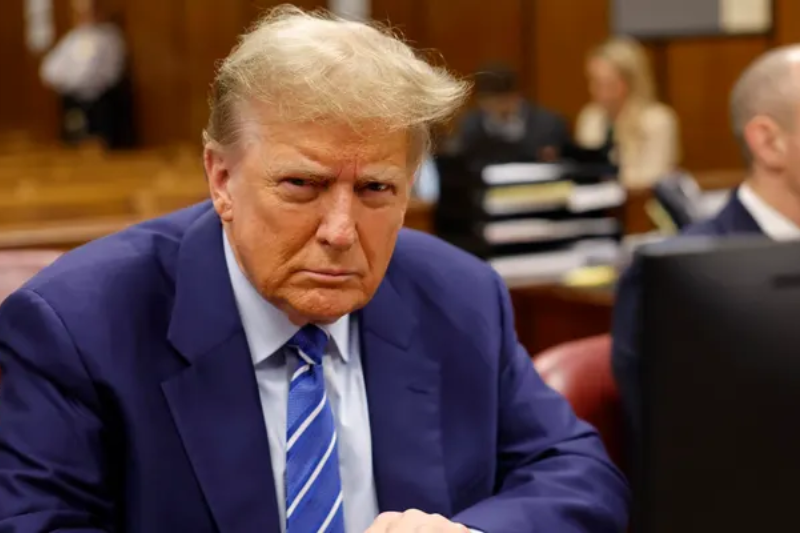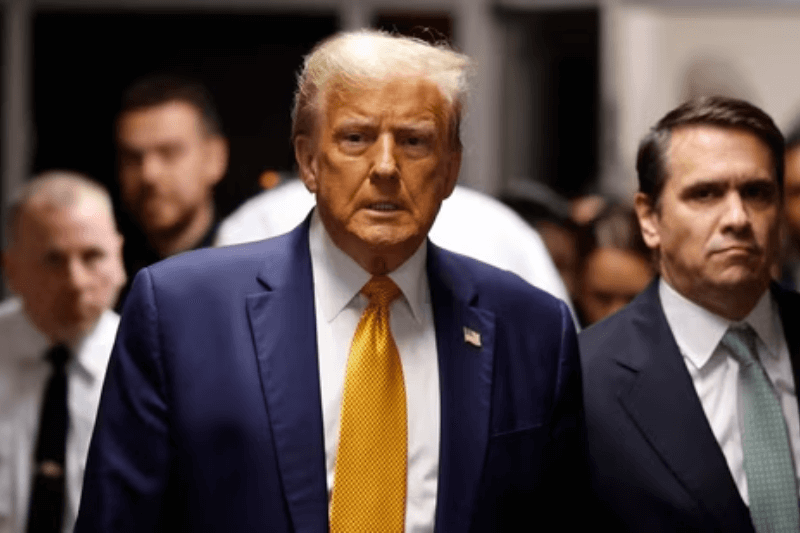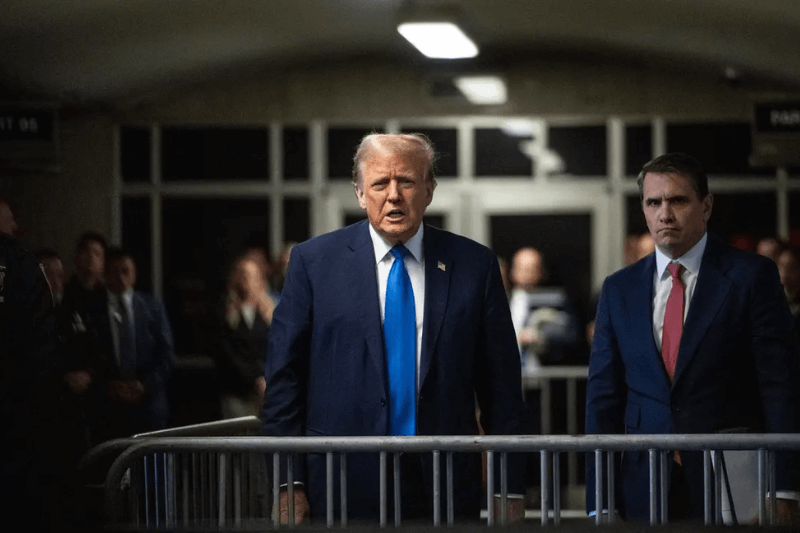
Trump’s Complaints Over Jury Selection in New York Trial
Day 3 of Legal Dynamics of Trump ‘Money Criminal Trial’ or ‘Hush Money Trial’
Amidst speculation about Donald Trump’s absence from the campaign trail on Wednesday, it’s crucial to clarify that his temporary hiatus does not signify a withdrawal from legal proceedings. As Trump’s first criminal trial unfolds in Manhattan, scheduled court sessions typically exclude Wednesdays, allowing Justice Juan Merchan to address other cases under his jurisdiction.
This procedural break aligns with Trump’s legal obligations, granting him respite from courtroom proceedings. While his campaign strategically avoids scheduling conflicts on Wednesdays, Trump remains engaged in the trial’s progression, navigating the intricate dynamics of the judicial process.
Let’s take a look back on Donald Trump’s legal battles, one particular grievance has captured attention: his complaint about the jury selection process in his New York hush money trial. Trump lamented that his lawyers were not afforded “unlimited” chances to reject prospective jurors, sparking a debate over the intricacies of jury selection in criminal trials.
Legal Parameters and State Law
Under New York state law, both prosecutors and the defense are granted a specific number of peremptory strikes, allowing them to dismiss potential jurors without providing a reason. The allotted number of strikes varies based on the severity of the charges faced by the defendant. In Trump’s case, involving charges related to falsifying business records, the number of challenges is limited.
Trump’s Assertions and Legal Commentary
Trump’s Perspective on Trials
Donald Trump took to social media to voice his frustration, expressing disbelief at the restricted number of strikes available during jury selection. He criticized the limitations imposed on his legal team, implying that the constraints were intentional and disadvantageous.
Keep Reading
Legal Experts’ Insights
Legal experts have weighed in on Trump’s complaints, highlighting the fundamental principles of jury selection and the constraints imposed by state law. Samantha Chorny, a criminal defense lawyer in New York City, emphasized the necessity of balanced jury selection procedures, noting that unlimited strikes would undermine the integrity of the process.
Analysis of Trump’s Claims
Jeremy Saland, another New York criminal defense attorney, characterized Trump’s grievances as reflective of a misunderstanding of legal principles rather than genuine concerns. Saland suggested that Trump’s remarks may be driven by a desire to portray himself as a victim, rather than a nuanced understanding of jury selection rules.
The Trial’s Progress and Future Outlook
Jury Selection Timeline
Despite Trump’s complaints, the jury selection process has proceeded, with seven jurors already seated for the trial in Manhattan Supreme Court. However, the selection of additional jurors and alternates is ongoing, with the trial expected to resume following a brief hiatus.
Legal Dynamics and Trial Length
Legal analysts initially anticipated a prolonged jury selection process due to the high-profile nature of the case and the challenges associated with finding impartial jurors. However, the pace of selection has exceeded expectations, prompting speculation about the trial’s duration and potential impact on Trump’s political activities.
Allegations and Legal Ramifications
The charges against Trump, related to falsifying business records linked to a hush money payment, have significant legal implications. Manhattan District Attorney Alvin Bragg has accused Trump of attempting to influence the outcome of the 2016 presidential election through covert actions, a charge vehemently denied by Trump.
As the legal proceedings unfold, Donald Trump’s complaints about jury selection underscore the complexities of criminal trials and the nuances of legal procedure. While Trump’s grievances have garnered attention, legal experts emphasize the importance of adhering to established legal principles and procedures in ensuring fair and impartial trials.



